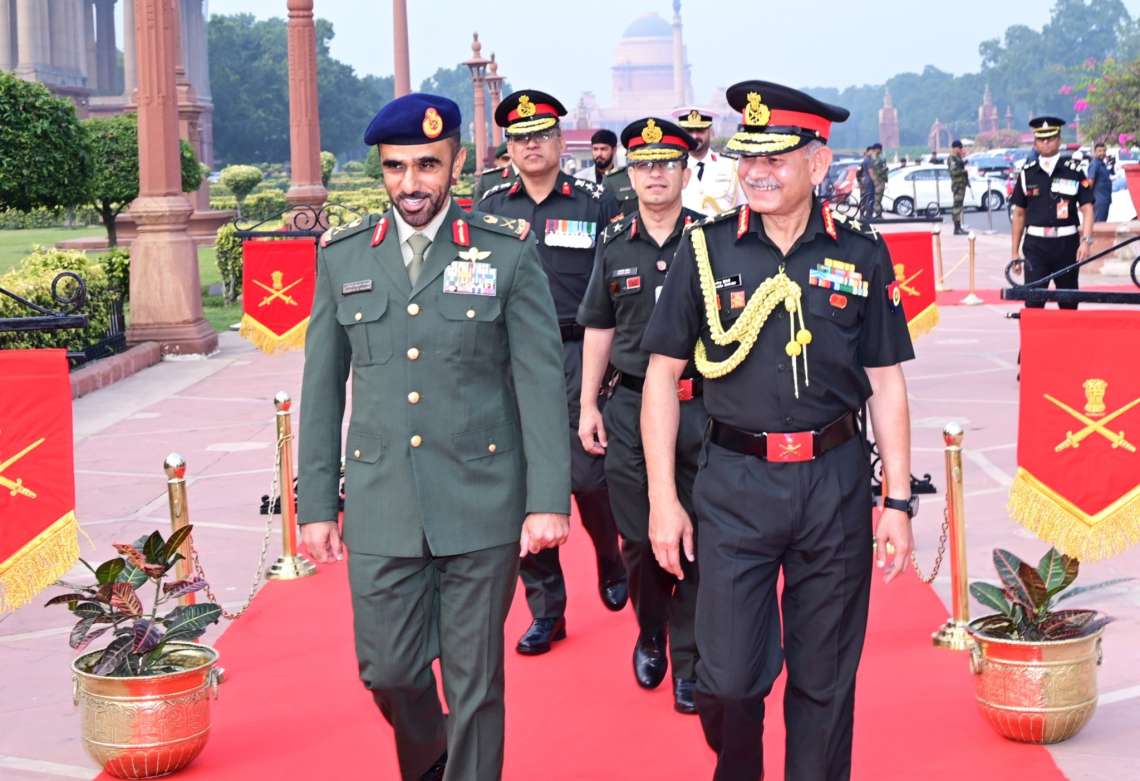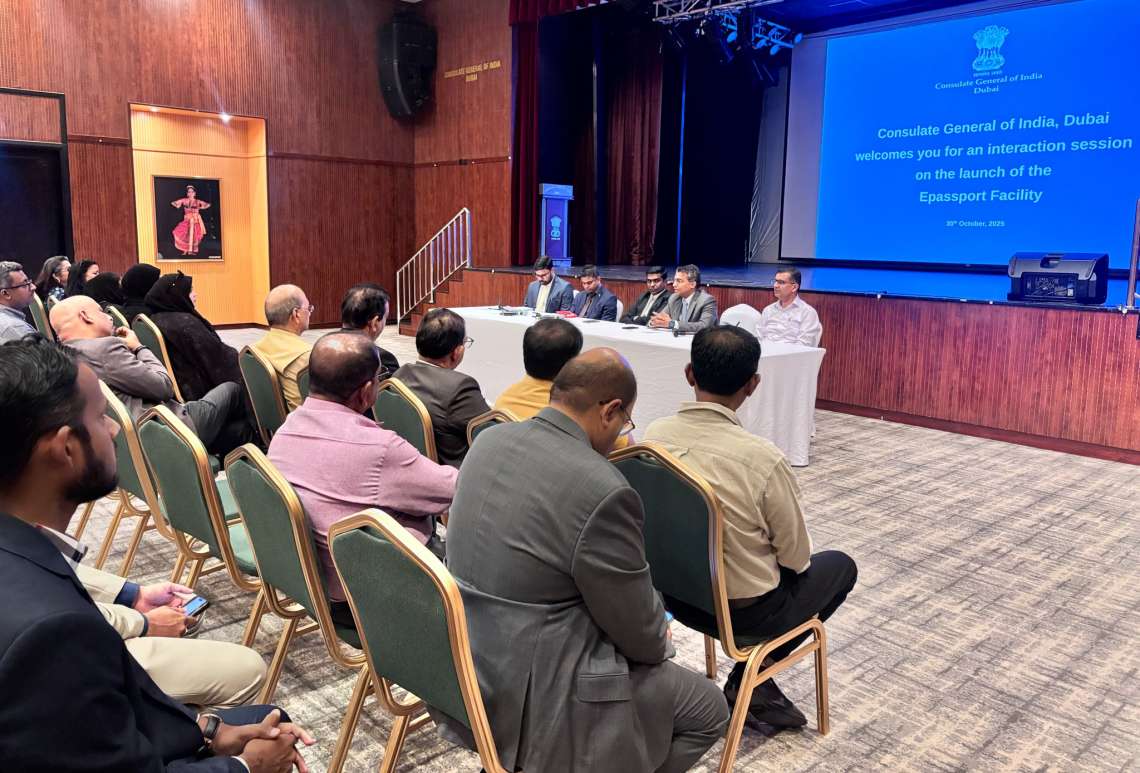New Delhi hosts Taliban foreign minister in cautious step towards pragmatic engagement…reports Asian Lite News
Afghanistan’s acting foreign minister Amir Khan Muttaqi arrived in New Delhi on Wednesday in what is being viewed as a carefully calibrated shift in India’s approach to the Taliban regime. The week-long visit, which will include meetings with External Affairs Minister Subrahmanyam Jaishankar and possibly National Security Adviser Ajit Doval, marks the highest-level public engagement between the two sides since the Taliban’s return to power in August 2021.
Although India has not formally recognised the Taliban government, the visit signals a pragmatic thaw and a cautious reset in ties, shaped by New Delhi’s core priorities—regional stability, counter-terrorism, and humanitarian and developmental cooperation. Senior Indian officials have described the talks as an “opportunity to re-engage on India’s terms”.
Muttaqi’s presence in India is diplomatically significant in itself. His travel has been made possible under special waivers from the United Nations Security Council sanctions regime, underscoring the tentative and conditional nature of international engagement with Kabul’s de facto rulers. Alongside official meetings, Muttaqi is also scheduled to undergo a medical check-up during his stay, reflecting the routine but practical facets of Afghan dependence on India.
For Afghanistan, the visit carries equally weighty expectations. The Taliban leadership has been exploring the possibility of restoring full-fledged ambassadorial representation in New Delhi, along with greater consular staffing. At present, India operates only a “technical team” in its Kabul embassy, re-established in June 2022 after the mission was evacuated amid security concerns a year earlier. Kabul sees enhanced diplomatic presence in India as a step towards legitimacy while also facilitating smoother access for trade, visas for students, and medical travel.
India, however, is treading with caution. Officials stress that New Delhi’s emphasis continues to be on people-to-people ties, with education and healthcare forming the bedrock of cooperation. Expansion of scholarship quotas for Afghan students, particularly in professional and technical fields, and continued medical missions are expected to be prominent on the agenda. Development assistance, already a long-standing feature of India’s Afghan policy, may be expanded in areas such as electricity supply, water management, and healthcare infrastructure.
Yet, beyond humanitarian aid and education lies a more strategic imperative—security. Indian policymakers remain deeply concerned about the resurgence of militant groups in eastern Afghanistan and the potential spillover effects into the wider region. Engaging the Taliban on counter-terrorism, even without formal recognition, is seen as indispensable.
“India’s long-standing position that Afghan soil must not be used for terror activity against any country remains central to all our interactions,” a senior government source said, highlighting New Delhi’s security red lines. The expectation is that the Taliban must take tangible steps to prevent terrorist sanctuaries from flourishing on Afghan territory, especially groups hostile to India’s interests.
The May 15 telephone conversation between Jaishankar and Muttaqi had already signalled a tentative opening, marking the highest-level direct communication since 2021. In January, Taliban officials publicly acknowledged India as an “important regional and economic power”, underlining Kabul’s desire for a deeper relationship. Muttaqi’s current visit, therefore, builds on those earlier exchanges and provides a visible platform for structured dialogue.
Nevertheless, India remains firm in its broader stance: recognition of the Taliban regime will not come without demonstrable progress towards political inclusivity and respect for basic rights. For New Delhi, this is as much about principle as it is about domestic and international optics. India cannot afford to be seen as endorsing a regime criticised for curtailing women’s rights and political freedoms.
At the same time, pragmatism dictates engagement. India has consistently provided humanitarian aid to Afghanistan, including shipments of wheat, medicines, and vaccines, and has supported efforts to ensure unimpeded delivery of supplies during the country’s continuing economic and humanitarian crisis. The return of its technical team to Kabul two years ago was an early indicator of New Delhi’s evolving calculus: maintain a presence, provide assistance, and keep communication lines open—without conferring full recognition.
Diplomatic observers note that the visit also has wider regional implications. With Pakistan grappling with its own security and economic crises, and China expanding its footprint in Afghanistan, India is keen to ensure it retains influence in Kabul. Engaging the Taliban leadership directly, while reinforcing red lines on terrorism, allows New Delhi to safeguard its strategic interests in the region.
Muttaqi’s presence in New Delhi therefore encapsulates India’s balancing act: cautiously opening the door to dialogue, without stepping across the threshold of formal recognition. It is a signal that India is willing to engage pragmatically, on its own terms, but not at the cost of abandoning long-standing principles.
For Kabul, the symbolism is equally important. Even without recognition, a warm welcome in India offers the Taliban a degree of legitimacy and demonstrates that isolation is not absolute. For New Delhi, the visit represents the continuation of a deliberate, step-by-step recalibration: engaging without endorsing, and talking without yet trusting.
As the meetings unfold in the coming days, the focus will remain on whether both sides can carve out practical areas of cooperation—education, health, aid, and counter-terrorism—while leaving the question of recognition to a future still clouded by uncertainty.














